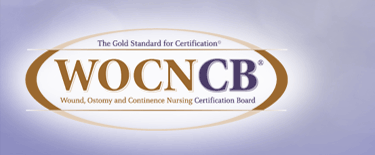PGP portfolios due by 12/31/2024 will be Accepted through January 7th, 2025
The WOCNCB® offices are closed December 23rd - January 2nd for the holidays. The PGP portfolio submission deadline is extended to January 7, 2025 for portfolios normally due 12/31/24.Public Policy and Advocacy
About the WOCNCB Public Policy and Advocacy Committee
The main purpose of the Public Policy and Advocacy Committee is to:
- Monitor and inform WOCNCB certified nurses about legislation, nursing licensure, and regulatory actions that affect or impact the roles of WOCNCB certified nurses and certification.
- Educate state and federal legislators, regulators, and public about the key role WOCNCB certified nurses' play providing safe, cost effective and expert care, and
- Empower public policy knowledge and activism among WOCNCB certificants
Receive email updates from the Public Policy and Advocacy Committee.
The WOCNCB Public Policy and Advocacy Committee is currently monitoring legislative and regulatory action that impacts certified wound, ostomy, continence, and foot care nurses. Committee members are regularly monitoring the following websites for important information on public policy impacting our specialties:
|
|
|
The Public Policy and Advocacy Committee (PPAC) follows important legislation and regulations that impact wound, ostomy, continence, and foot care nurses and patients. Legislation the Committee is currently following includes:
Improving Care and Access to Nurses (ICAN) Act (HR2713): The ICAN Act would improve health care access for Medicare and Medicaid beneficiaries by removing federal barriers to practice for nurse practitioners.
The Amputation Reduction and Compassion Act of 2023 (HR4261). The Amputation Reduction and Compassion Act provides coverage of peripheral artery disease screening tests without cost-sharing under Medicare and Medicaid for certain at-risk individuals. It also requires the development of certain educational programs, a payment model, and Medicare quality measures to reduce amputations relating to such disease.
The Safe Step Act (S.652), which would require group health plans to provide an exception process for any medication step therapy protocol to help ensure that patients can safely and efficiently access treatment. This legislation is particularly significant for ostomy patients.
The Medical Nutritional Therapy Act (S. 3297/H.R. 6407). This bill expands Medicare coverage of medical nutrition therapy services to individuals with additional diseases and conditions, including obesity, eating disorders, cancer, and HIV/AIDS; the bill also allows additional providers to refer these services such as physician assistant, nurse practitioner, clinical nurse specialist, or (for eating disorders) a clinical psychologist. Those with high output ostomies, Short Bowel Syndrome, fistulas, and other GI diseases might benefit from this legislation.
FDA new proposal to classify certain wound dressings and wound washes. FDA-2023-N-3275
RULE in federal register: “The Food and Drug Administration (FDA, Agency, or we) is proposing to require the filing of a premarket approval application (PMA) for certain solid wound dressings; wound dressings formulated as a gel, cream, or ointment; and liquid wound washes containing antimicrobials with a high level of antimicrobial resistance (AMR) concern (i.e., medically important antimicrobials) acting as either protectants or preservatives, which are unclassified, pre-amendments devices. FDA is summarizing its proposed findings regarding the degree or risk of illness or injury designed to be eliminated or reduced by requiring the devices to meet the PMA requirements of the Federal Food, Drug, and Cosmetic Act (FD&C Act) and the benefits to the public from the use of the devices.”
United Spinal Association ostomy supply letter
The WOCNCB signed onto a letter asking the DME MAC Medical directors for a formal review of current ostomy HCPCS codes and allowable quantities. The letter also recommends a 72 hour appeals process.
The Lymphedema Treatment Act
This legislation provides new coverage for compression supplies and was passed in December 2022. While passage of the Act took effect on January 1, 2024, implementation has lagged due to a lack of clarity around several provisions. We are continuing to follow the development of clearer guidelines to provide this coverage to patients.
The PPAC is working to develop regular updates on legislative and regulatory matters to help our certified nurses advocate for quality care for their patients. Current Committee priorities are development of strong relationships with coalition stakeholders and improving public policy and advocacy communications with our certificants and the public.

National Legislators
Contact your U.S. Senator
Contact your U.S. Congressman
State Information
Attend your State "Nurse at the Capitol" Event
Contact your State Board of Nursing
Contact your State QIO Contractor
Contact National Conference of State Legislatures
For more information visit the WOCN Society Public Policy & Advocacy home page.




